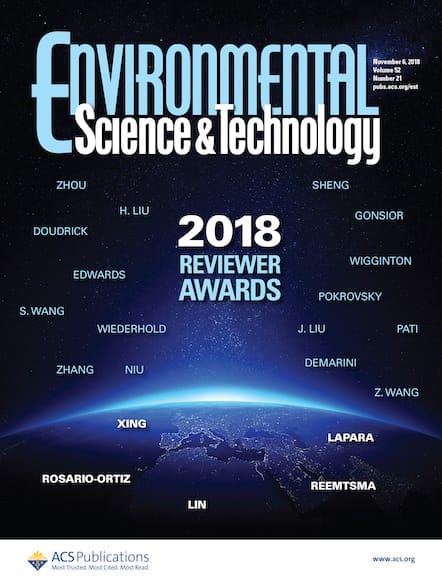University of Michigan Professor Kerri Pratt is the recipient of the 2018 James J. Morgan Environmental Science & Technology Early Career Award. The James J. Morgan ES&T Early Career Award, named afterthe first Editor-in-Chief of Environmental Science & Technology, recognizes the contributions of early career researchers who have led the field in new directions through […]

University of Michigan Professor Kerri Pratt is the recipient of the 2018 James J. Morgan Environmental Science & Technology Early Career Award. The James J. Morgan ES&T Early Career Award, named afterthe first Editor-in-Chief of Environmental Science & Technology, recognizes the contributions of early career researchers who have led the field in new directions through creative, new ideas consistent with Morgan’s early contributions in environmental chemistry.
Kerri Pratt is the Seyhan N. Eğe Assistant Professor of Chemistry and Earth & Environmental Sciences at the University of Michigan. Her innovative research focuses on the study of atmospheric aerosols and trace gases using analytical mass spectrometry, and has risen to important role within Arctic atmospheric chemistry, where massive change is underway.
In 2018, the James J. Morgan ES&T Early Career Award will be presented at the 255th ACS National Meeting & Exposition New Orleans, where Dr. Pratt will give an invited talk. Recently, I had a chance to conduct a short interview with Professor Pratt to learn more about her work.
I started environmental science research during a summer program in high school and was hooked. By studying Arctic atmospheric chemistry, I combine my passions for science, snow, and the outdoors, while contributing to science where the ecosystem is changing more rapidly than anywhere else on Earth.
By applying novel analytical methods in the Arctic, where few observations exist, we are gaining significant insights into understanding Arctic atmospheric composition, particularly in the areas of marine aerosol emissions, oil and gas extraction emissions, and snowpack reactions that produce trace gases.
I hope that our research results will guide future simulations of future Arctic atmospheric composition and climate change and inform decision-making processes for Arctic development.
The Arctic is changing rapidly, and there is an urgent need to observe the changes as they are occurring. Logistically, the Arctic is a hard place to work – remote locations, cold temperatures, changing sea ice, polar bears, and low levels of compounds that we are attempting to measure. Beyond these challenges the sea ice is so changing rapidly from year-to-year that gaps in even “baseline” monitoring data presents significant challenges in understanding Arctic climate change.
I am incredibly honored to be awarded the James J. Morgan Early Career Award. To me, it means our environmental chemistry research has been noticed and valued, which is incredibly exciting!
It may sound cliché, but follow your passion and listen to your gut. I enjoy working with students and instruments, traveling, and being outdoors. To me, being a professor as a research university conducting fieldwork to understand the chemical details of Arctic change is a dream job, despite the challenges.
